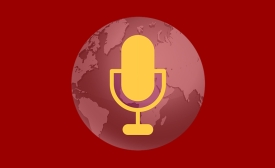homeland security

Episode 3 of this podcast series hosted by CPD Student Fellow Madison Jones features an interview with Dr. Erroll Southers.
The Geneva Convention, signed by war-weary nations in August 1949, now binds 196 countries to protect civilians in war zones. Microsoft’s president, Brad Smith, argues that the U.S. and other countries now need to draw up a digital equivalent to protect civilians and companies caught in the crossfire of constant cyberwar.
The report highlights February 2015 data from the Student and Exchange Visitor Information System (SEVIS), a Web-based system that includes information about international students, exchange visitors and their dependents while they are in the United States.
The Federal Bureau of Investigation and the Department of Homeland Security this weekend jointly issued the strongest warning yet for U.S. servicemen to scrub their accounts on Facebook, Twitter and other social media.
...the apology was a masterpiece in diplomatic engagement and crisis management in public diplomacy, from which India’s public diplomacy division in the capital’s Shastri Bhavan could learn. The US embassy did not simply issue a press release and leave its use to availability of space in the media and the discretion of news editors. At very short notice, the mission called the media to the embassy...
Department of Homeland Security (DHS) became concerned that terrorists may had been planning to exploit the U.S. visa system... So why are we hinging the program’s expansion and U.S. public diplomacy on an unrealistic and expensive measure that will provide little added security?
Yet these new commitments to control the border have been largely expressions of public diplomacy rather than manifestations of new thinking about the border.







